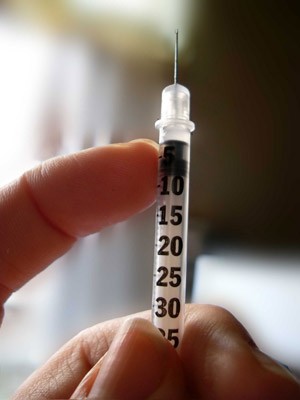“It’s very good to clean up doping in sport,” says Carlos Castaño
 Carlos Castaño, the President of the Spanish Cycling Federation (RFEC), has welcomed the latest Spanish doping scandal, Operación Galgo, according to La Marca. Castaño, speaking at the presentation of January’s Spanish national cyclocross championships, told the Spanish sportspaper that anything that would help to clean up doping in sport would be a very good thing.
Carlos Castaño, the President of the Spanish Cycling Federation (RFEC), has welcomed the latest Spanish doping scandal, Operación Galgo, according to La Marca. Castaño, speaking at the presentation of January’s Spanish national cyclocross championships, told the Spanish sportspaper that anything that would help to clean up doping in sport would be a very good thing.
The police invstigation centres around notorious doctor Eufemiano Fuentes, famous for being the doctor at the centre of Operación Puerto, an so far does not involve the names of any current cyclists.
Castaño noted that there have been a number of similar cases in cycling “when there has been heavy impact of sanctions on cyclists because cycling enforces [anti-doping] legislation very strictly.”
He noted that Fuentes’ name has once again been linked to a doing ring, “if he is also mixed up in this, it will be the second error will be committed by that man and he will have to pay for it”.
There was a note of caution in Castaño’s words though, as he urged people not to judge the case too quickly, or to jump to any conclusion before all the evidence had been reviewed. “In Spain there is the presumption of innocence, so until it has been tried and made public cannot be assume that an offence has been committed, because in this regard much harm was done to cycling”.
Castaño’s comments are interesting as he appears to be welcoming an investigaton into doping in sports which, at first glance, appears to be almost identical to Puerto. The big difference with the latest case is that so far no stars of Spanish cycling have been implicated, whereas last time many of them were. Track and field athletes have so far been implicated and Fuentes himself has hinted that Spain’s national football (soccer) team might lose its World Cup title if he decides to tell all.
Operación Puerto was felt heavily in every country of the athletes involved; except Spain. For example, Jan Ullrich found himself hounded out of the sport, and Ivan Basso and Michele Scarponi both served lengthy bans. Alejandro Valverde however, the prince of Spanish cycling, only received his punishment after a local ban in Italy was enforced worldwide by the International Cycling Union (UCI) taking the case to the Court for Arbitration in Sport (CAS).
Whether or not Castaño will be quite so welcoming of the investigation if any Spanish cyclists are named, is a matter of debate.